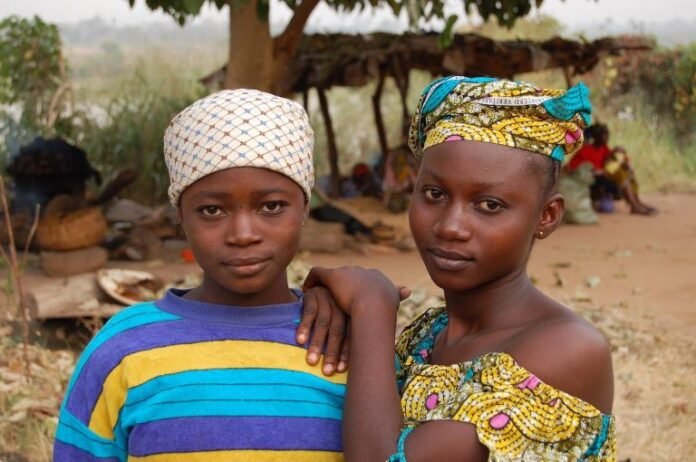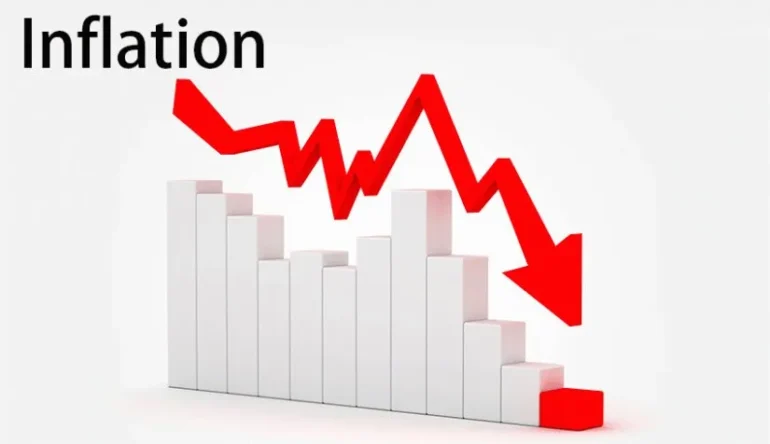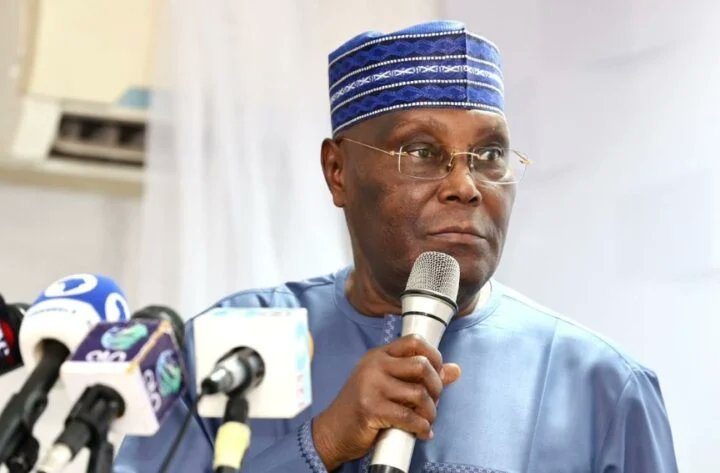Nearly 1.4 million displaced Nigerians in the North East may soon face starvation. Humanitarian aid has run dry, and food is becoming scarcer by the day.
The United Nations World Food Programme (WFP), once a lifeline for thousands, has emptied its warehouses. Rising inflation, donor fatigue, and worsening insecurity are pulling the rug from under families that already lost everything.
According to the UN Office for the Coordination of Humanitarian Affairs (OCHA), the humanitarian crisis is spreading across Borno, Adamawa, and Yobe. It warned that 1.8 million children are now at risk of Severe Acute Malnutrition (SAM).
Food inflation soared to 40.9% in June 2024, worsening an already fragile situation. The Cadre Harmonisé report — led by Nigeria’s government with the support of FAO and WFP — estimates that 34.7 million Nigerians will face hunger during the June–August 2025 lean season.
‘No More Food To Give’
In Gwoza, Borno State, Aisha Abubakar clutched her infant, waiting her turn at an aid centre. She had just received her final credit on a WFP-issued debit card — $20, barely enough to buy a sack of maize.
“I’m grateful,” she said. “But it can’t feed us for a month.”
Trust Mlambo, WFP’s head of operations in the region, confirmed the grim reality. “We don’t have any more to give after this cycle,” he said. “Our warehouses are empty. We are desperate for any generous donations.”
The BBC quoted U.S. officials blaming the situation on a reorganisation of humanitarian programmes under a cost-cutting initiative. “The United States continues to be the most generous nation in the world,” a State Department official said.
But according to Médecins Sans Frontières (MSF), over 650 children have died in 2025 due to malnutrition. “The true scale of the crisis exceeded all expectations,” said MSF’s country representative, Ahmed Aldikhari.
MSF treated 357,000 malnourished children in 2024 — a 35% increase from the previous year. The crisis hit early and hard, starting in March and extending through November.
“We fear 2025 could be worse than any year before,” MSF warned.
‘No Aid, No Farms, No Food’
Insecurity is compounding the problem. Many displaced families cannot farm. In Gwoza, 25-year-old Hauwa Badamasi said she hasn’t accessed her family’s farmland in years.
“The aid has stopped, and people are being killed on the farm. What are we going to do with our lives?” she asked.
“We will be in a dire situation with no food and no medicine.”
Aid workers also fear a darker turn — that desperation may drive some into the arms of Boko Haram.
“It will be easier for militants to lure youths,” Mlambo said. “If people can’t get their next meal, they may go just across the hills to enrol.”
UN-OCHA’s Trond Jensen said U.S. funding cuts halved the UN’s capacity to address malnutrition in the region. “Sixty percent of our support came from the U.S. That’s now history,” he said.
‘We Can Help Ourselves’
Borno State says it is not waiting for the world. Commissioner for Information, Prof Usman Tar, told pressmen that Governor Zulum has set up plans to cushion the aid withdrawal.
“The governor proactively established policies and programmes to mitigate the adverse effects,” he said.
The state’s 10-year transformation strategy focuses on sustainability and targeted resource allocation.
But not everyone sees the aid cut as a tragedy. Security analyst Abdullahi Garba called it “a blessing in disguise.”
“Reliance on foreign aid has made people lazy,” he said. “Let’s push away the enemies in our domain and face our businesses.”
He added: “I’m not saying aid funds terrorists, but if you look critically, insurgency has refused to end despite the billions spent.”
Garba argued that if insurgents are also starved of funds, they might struggle to recruit or sustain operations.
But critics fear that without immediate help, the poor and vulnerable — especially women and children — will suffer most.
Two weeks ago, Vice President Kashim Shettima acknowledged that malnutrition had stunted 40% of Nigerian children under five.
“We’ve set up a war room to battle malnutrition in every corner of the country,” he said.
Will it be enough — and can it come fast enough? Nigerians are waiting for more than words.
Rate, Like 👍, Comment💬, share this article, Follow us on our social media handles, and Submit your own story to get featured and earn rewards!








